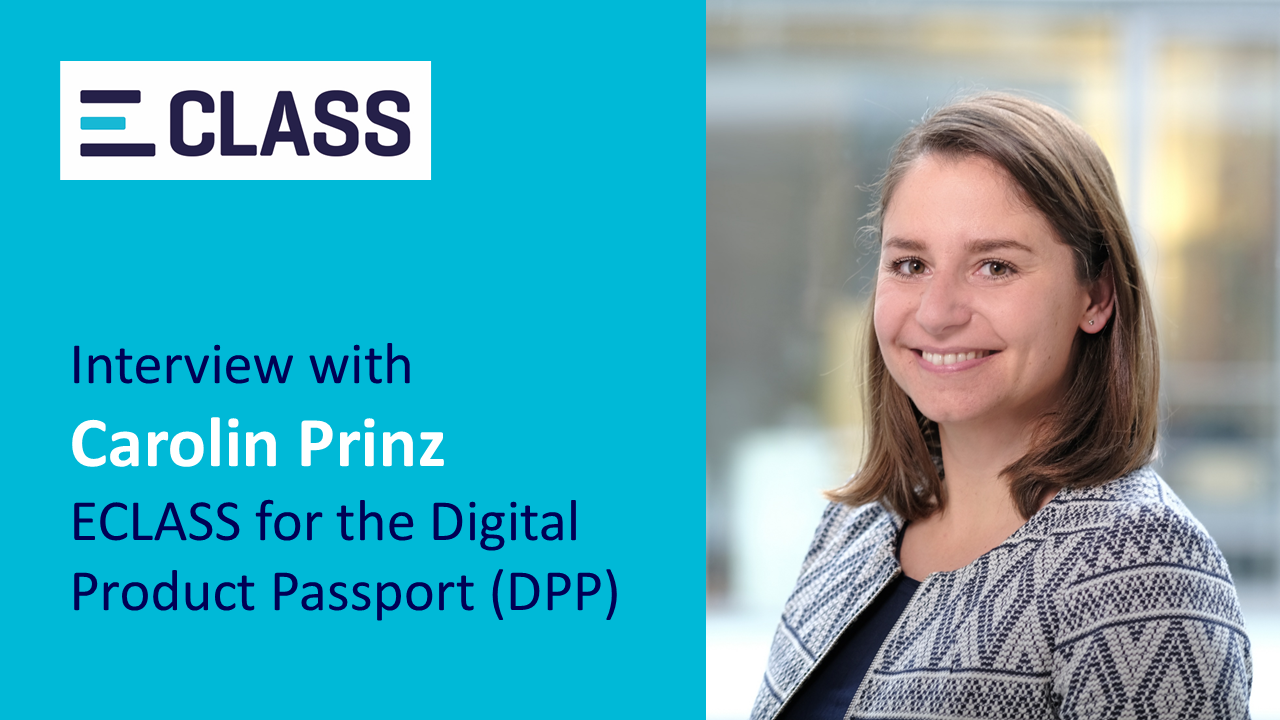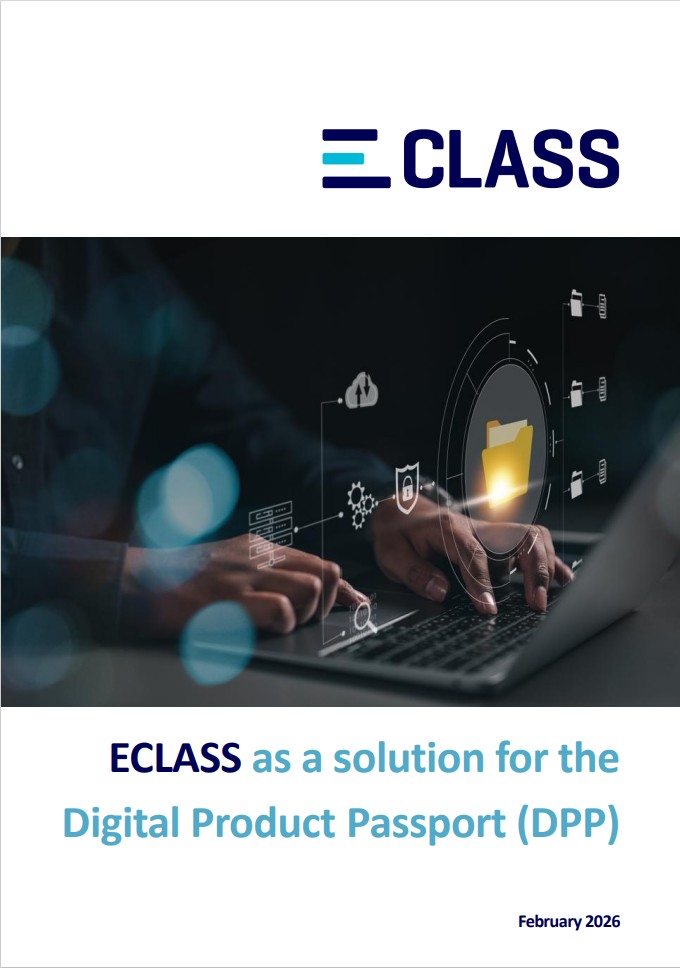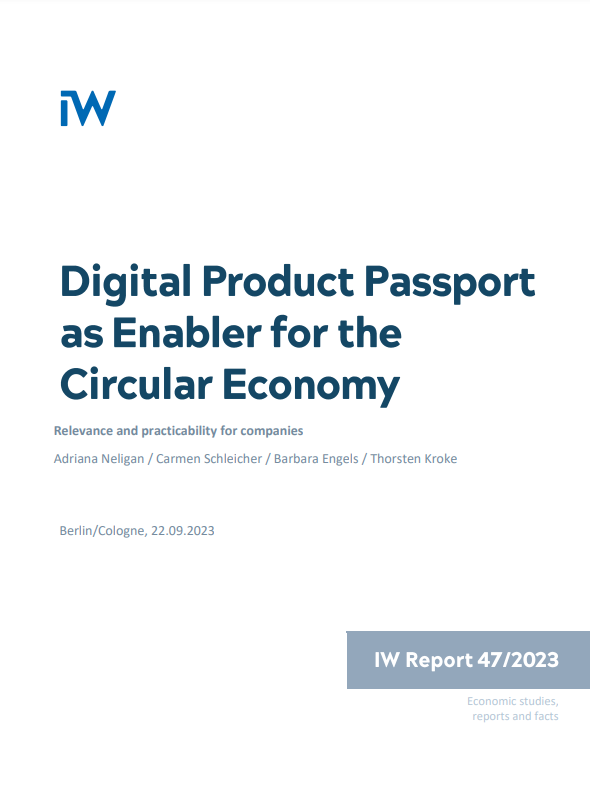Digital Product Passport (DPP)
What is a Digital Product Passport (DPP)?
To protect the environment and the climate, EU wants to launch a Digital Product Passport (DPP) as part of its Green Deal. The Battery Pass will be the first Digital Product Passport in the EU. From 2027, it will be become mandatory for industrial and car batteries. Digital Product Passports for other product groups will follow.
In a Digital Product Passport all relevant product information such as manufacturer, repair and disposal options should be recorded digitally and made transparently accessible to all stakeholders involved in the product life cycle via the DPP system. The structuring of this environmentally relevant data is to be carried out in a standardized, comparable format. In a study on the Digital Product Passport, the German Economic Institute (IW) recommends using the ECLASS Standard to set up a DPP.
ECLASS as the solution for the Digital Product Passport
With about 48,000 classes and 23,000 unique properties the ECLASS Standard already provides a manufacturer-independent and cross-industry solution to uniquely describe products. In addition, ECLASS is subject to continuous further development by experts from development, industry and trade so that it always meets current requirements.
Information for the Digital Product Passport can be mapped with ECLASS structural elements such as "Environmental Footprint", "General Battery and Manufacturer Information" or "Circularity and Resource Efficiency" in the Asset Administration Shell (AAS). The Asset Administration Shell is an exchange format for data and bundles information about products along their entire life cycle in sub-models.
The DPP with ECLASS: Convincing arguments
Over 4,000 companies worldwide are already successfully using the ECLASS Standard for digital data exchange and across all borders.
With ECLASS 15.0, we provide users with full translations in 29 of our 31 available languages.
The ECLASS standard for product descriptions can be used independently of manufacturers and industries. Different standards from industries such as electrical engineering, food, automotive or office supplies are developed by ECLASS into a uniform, cross-industry standard.
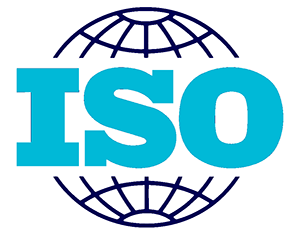
ECLASS complies with internationally recognized standards so that ECLASS users can rely on the quality and safety: The data model of the ECLASS Standard is based on ISO 8000 / ISO 13584 / IEC61360 / DIN 4000 / DIN 4001 / DIN 4002, part 1 – 7. Every structure element has a globally unique identifier (IRDI, ISO 29002). In addition, the procedure for maintaining and further developing ECLASS is also standard-compliant (ISO 22274). The ECLASS Standard is suitable for data exchange in accordance with ISO 29002.
ECLASS is an open standard which constantly being further developed and can therefore always respond to changes on the market. Together with experts from development, industry and trade we elaborate a new release every year to keep the Standard up to date and to map all new requirements in ECLASS. Anyone can submit a Change Request to extend or adapt the Standard – whether a member of ECLASS e.V, a user or an expert with an interest in the Standard.
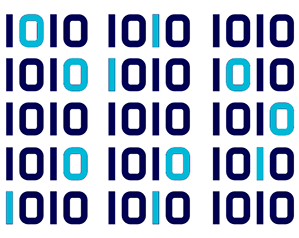
ECLASS product descriptions can be exchanged directly via a Webservice as XML or JSON. The Digital Product Passport can be created in the data container of the AAS. This AAS is then mapped in ECLASS.
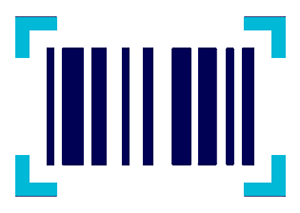
Common identifications such as GTINs, DUNS, internal article numbers, identification links (IEC 61406), etc. can be easily mapped as product properties in the ECLASS Standard.
Information brochure for download
IW Study on the DPP: Digital Product Pass — Enabler of the Circular Economy
In a circular economy, a new understanding of economic activity and an alternative approach to raw materials are required. Resources should be used for as long as possible in order to reduce both the material and energy consumption as well as the waste and emissions of an economic system to a minimum.
The ECLASS data standard, with its interoperability, modular system and conformity with standards and global norms, offers many advantages for the development of a DPP.
Any questions?
We would be happy to answer your questions about the Digital Product Passport with ECLASS. Simply contact us at the ECLASS Head Office in Cologne.
